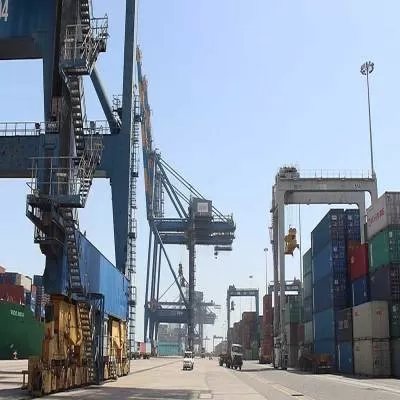
Mumbai, April 24 -- India's crude oil import bill rose 2.7 per cent to $137 billion in FY25, up from $133.4 billion a year ago, according to data from the Petroleum Planning and Analysis Cell (PPAC). The country imported 234.3 million tonnes of crude during the fiscal year, compared to 226.6 million tonnes in FY24 - a 3.4 per cent jump.
In March 2025 alone, India imported 22.1 million tonnes of crude - up 6.3 per cent year-on-year - while the monthly bill remained flat at $12.1 billion.
India's import dependency for crude oil climbed to 88.2 per cent in FY25, marginally higher than the 87.8 per cent in FY24, driven by rising domestic demand.
Russian crude shipments rebounded in March after a brief dip in February, maintaining an average of 1.68 million barrels per day in Q1 2025, according to Kpler. Discounted prices on Urals and other grades, along with continued access to non-sanctioned vessels, helped Russian barrels remain attractive.
India's March crude intake touched a record 5.3 million barrels per day, with Russia contributing 1.88 Mbd. Iraq followed at 0.9 Mbd, Saudi Arabia at 0.56 Mbd, the UAE at 0.43 Mbd, and the US at 0.29 Mbd.
Analysts note Russian grades are still cheaper by $3-8 per barrel than West Asian or US oil, even after factoring in longer shipping routes and reliance on the shadow fleet.
Amid continued global uncertainty, Indian refiners are increasingly tapping US supplies to diversify. Imports from the US surged to 289,000 bpd in March 2025, up from 113,000 bpd last year. "WTI and Mars blends offer stable arbitrage for Indian complex refiners," said Sumit Ritolia, lead analyst at Kpler.
Brazilian grades like Tupi and Buzios are also gaining favour for their cost competitiveness and compatibility with Indian refining systems.
India's crude production slipped to 28.7 million tonnes in FY25, down from 29.4 million tonnes last year. The country currently imports 88 per cent of its crude and 50 per cent of its natural gas needs.
To cut dependence, the government is ramping up exploration and production, backed by recent amendments to the Oilfields Act. The revised law broadens the scope of "mineral oils" to include shale gas, CBM, oil shale, and more.
India's ninth round of OALP bidding saw strong interest from both public and private players. A consortium of ONGC, Reliance Industries, and BP won an offshore block in Gujarat. ONGC secured 11 blocks independently and four in partnerships, while Vedanta's Cairn Oil & Gas bagged seven blocks - signalling increased private sector participation.
Published by HT Digital Content Services with permission from Construction World.
